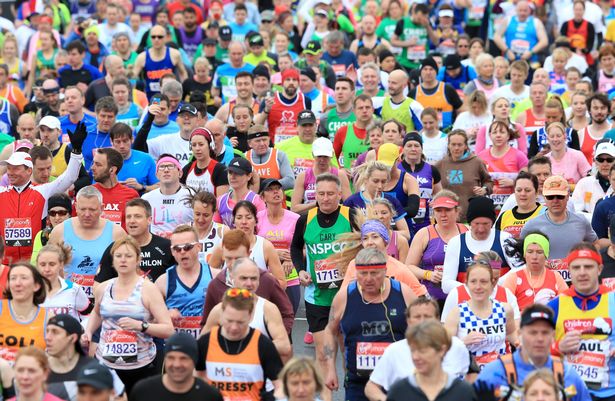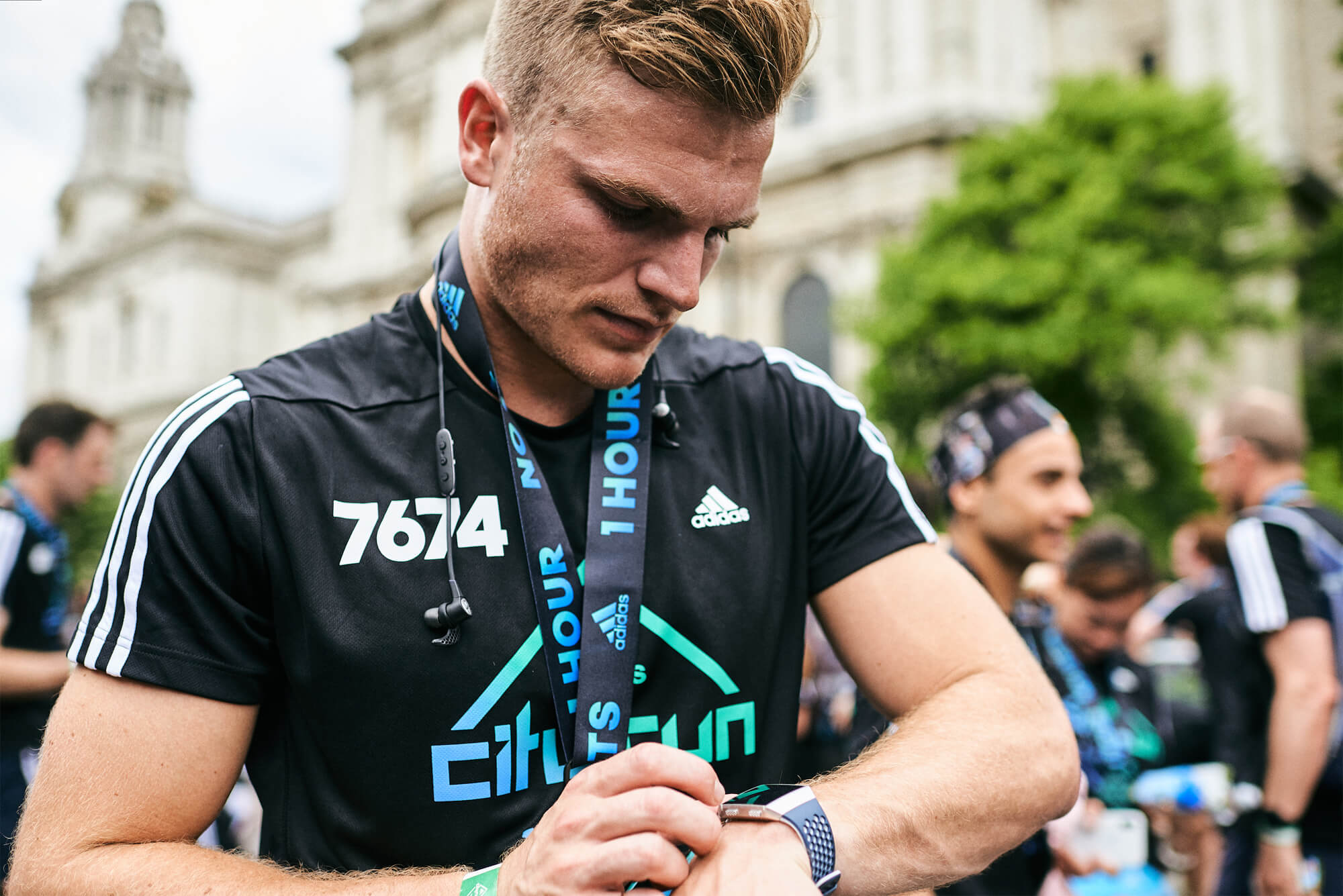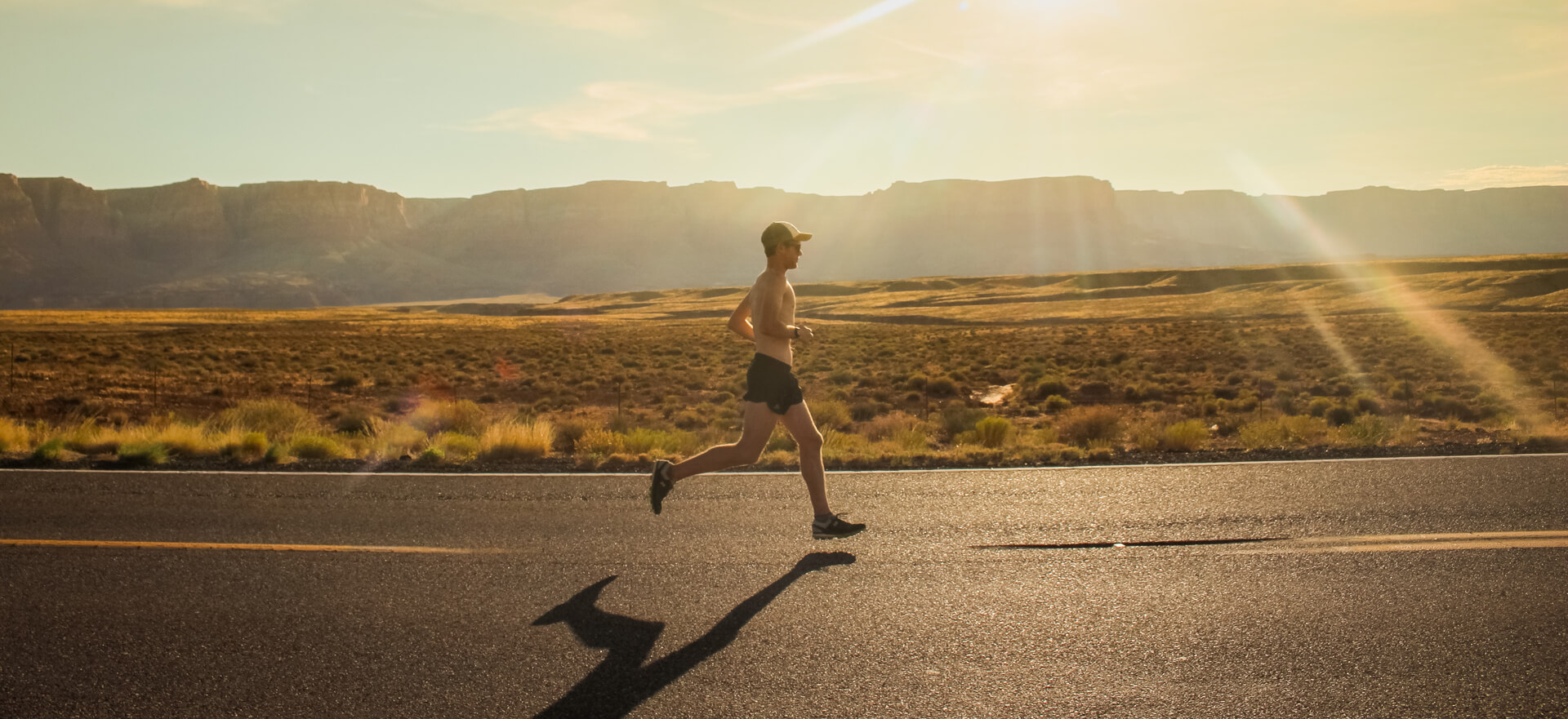
1. Don’t try anything new
Now is not the time to try to make up for missed sessions, to run faster than normal, or to explore new and exciting training routes. Stick to what you know.
Most important of all, don’t be tempted to break out a shiny new pair of shoes – if you haven’t done a long run in them, then don’t wear them for the race!
Similarly, if you normally run most days, don’t start taking lots of consecutive rest days – tapering means reducing volume and intensity, not stopping altogether.
And finally, eat sensibly, now is not the time to be adventurous!
2. Think about your recovery now
Recovery is the last thing that you’ll want to think about after you’ve run 26.2 miles, so think about it now so that you can walk down stairs more comfortably the next day and sit down without an audible groan.
After weeks of marathon training you’ll be in the shape of your life, so recovering properly can help you to take advantage and plan a summer of PBs over other distances.
Give recovery products (protein drinks and bars, compression clothing and comfortable, clean and dry trainers) to a friend or family member who will meet you at the finish.
Even though you won’t want to, try to do a bit of gentle walking during the afternoon.
3. Plan everything about race day morning
There are a lot of things to think about on Sunday morning, so plan in advance.
Lay all your kit out the night before so that you can see it all in one place and spot anything that’s missing.
Make sure you know which start you need to get to, how to get there and by what time. Allow extra time for inevitable delays.
Check the weather and make sure you have appropriate clothing to be standing around in.
Write an itinerary to include when you will set your alarm, when and what you will eat and when you will leave.
And most importantly don’t forget to plan when (and where!) you’ll go to the toilet!
4. Sleep early two nights before
Everyone is a little bit nervous the night before the race, and no one sleeps particularly well.
That’s normal, so make sure you get a good night’s sleep two nights before – that way a disrupted night’s sleep on Saturday night won’t impact your performance (mentally or physically) on Sunday.
5. Vaseline
A marathon is a war of attrition. And friction. If you’re wearing all the same kit as for your long runs, and you’ve not had any trouble, you should be OK.
But with the British weather being as fickle as it is, be prepared to apply Vaseline in the appropriate high-risk areas before the start, or during the race when Vaseline is handed out by the volunteers.
Similarly, it’s definitely worth considering some pre-emptive nipple protection, whether it’s tape or lubricant!
6. Put your name on your vest
London is famous for its crowd of enthusiastic and vocal supporters, so don’t miss out on the chance to have thousands of people shouting your name to encourage you throughout the race.
If you’re worried about hitting the wall, the genuine and heartfelt support of crowds of strangers might be the difference that helps you to dig deep.
7. Charge your watch
I’m pretty sure a marathon doesn’t count unless you post about it on social media, so make sure your GPS watch is charged. This will also help you to stick to your target pace on the day – especially when it can be very tempting to go too fast in the early stages.
Andy Baddeley, is running in the London 10 Mile, a major new closed road event held in the stunning Richmond Park, on Sunday 4 June 2017. For more info go to london10mile.com






